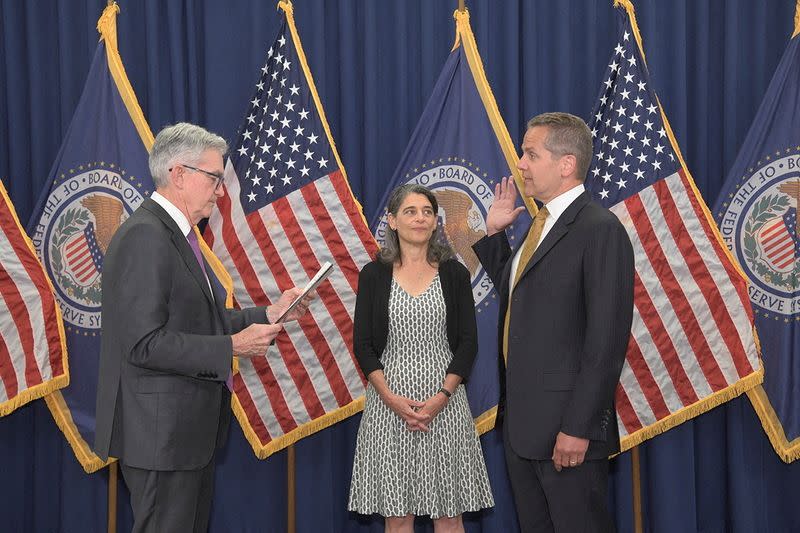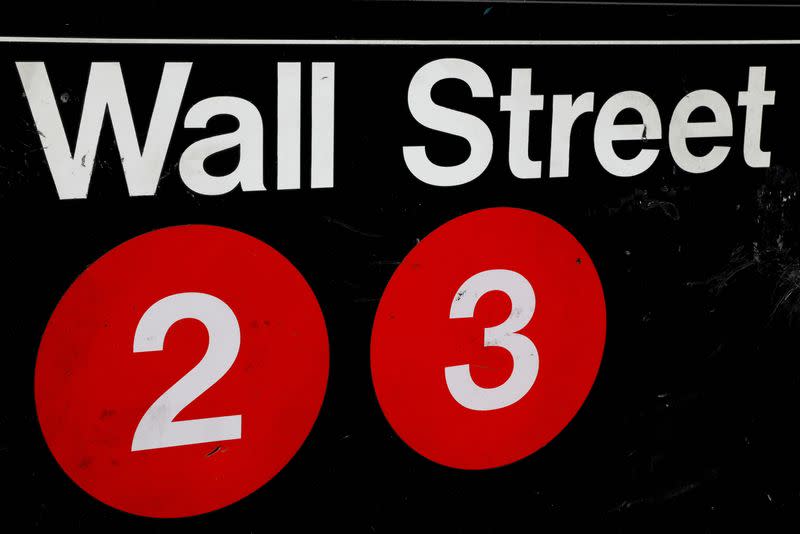By Pete Schroeder
WASHINGTON (Reuters) -The U.S. Federal Reserve is conducting a "holistic" review of bank capital requirements, plans to perform an analysis of lenders' climate change financial risks next year, and might impose tougher rules on large regional lenders, its new regulatory chief said on Wednesday.
In his first speech since joining the Fed in July as Vice Chair of Supervision, Michael Barr outlined an ambitious agenda that could spell a shake-up for big lenders which enjoyed a lighter touch, including easing of some capital rules, under the central bank's previous Republican leadership.
Barr said the capital framework was due for a review to ensure the rules were keeping up with emerging new risks.
"Success in financial regulation and supervision does not mean standing still because finance does not stand still," Barr told an audience at Washington think tank the Brookings Institution.
"We are looking holistically at our capital tools to understand how they are supporting the resilience of the financial system, individually and in combination," adding the review could inform adjustments to annual bank "stress tests," the supplementary leverage ratio and the countercyclical capital buffer, three key capital levers.
Barr also said the central bank planned to launch a pilot "scenario analysis" next year to assess climate-related financial risks facing lenders, a hotly awaited exercise that over the long-term could change who banks do business with. Barr said next year's test would not, however, dictate capital or who banks can lend to.
The Fed is also exploring how easily large regional lenders, which have grown dramatically following a series of mergers and acquisitions in recent years, could be wound down in the event of a crisis and potential policy changes for such lenders, said Barr.
Barr's role gives him extensive powers to oversee the country's largest lenders, and the industry and analysts had been waiting anxiously for insight into how he plans to use them.
Nominated by Democratic President Joe Biden, Barr had been widely expected to take a much more aggressive stance on Wall Street than his Republican predecessor Randal Quarles.
As a former senior Treasury Department official, Barr helped craft the 2010 Dodd-Frank law that created the Fed Supervision role and imposed a host of new rules on lenders in the wake of the 2007-09 financial crisis.
Still, Barr sought to reassure the industry that the Fed would work to minimize unintended consequences and avoid excess compliance costs.


